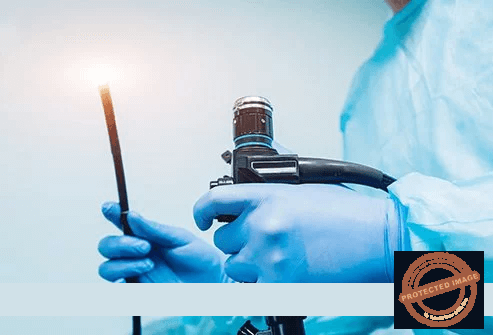In recent times, endoscopy has emerged as a crucial medical technique, allowing physicians to delve into the internal realms of the human body. This procedure has revolutionized medical diagnostics, enabling practitioners to pinpoint underlying issues and administer precise diagnoses. While Nigeria has embraced this advancement in the medical field, the focal point of discussion remains its associated cost.
In this article, we will delve into the pricing of endoscopy in Nigeria and provide essential insights into the process.
Cost of Endoscopy in Nigeria
Endoscopy, a progressively popular procedure in Nigeria, comes in various types, each associated with its unique price range. The two primary types are upper and lower endoscopy, contingent on the targeted body site.
Upper endoscopy, the more prevalent variant in Nigeria, is also the more economical option. Typically, this procedure can range from N40,000 to N100,000, depending on the facility chosen. On the other hand, lower gastrointestinal endoscopy is gaining traction and costs between N45,000 and N65,000 in most medical centers and clinics.
Key Insights into Endoscopy
Endoscopy stands as a non-surgical method employed to examine an individual’s gastrointestinal tract. It involves the use of a flexible tube equipped with a light and camera, allowing physicians to visualize the digestive tract on a monitor.
During upper endoscopy, the endoscope is guided through the mouth, down the throat, and into the esophagus, providing a view of the upper segments of the small intestine. In specific cases, endoscopes may be introduced into the colon via the rectum for further examination.
An advanced form known as endoscopic retrograde cholangiopancreatography (ERCP) enables examiners to scrutinize structures like the pancreas and gallbladder, and is also employed for procedures like stent placement. Additionally, Endoscopic ultrasound (EUS) combines upper endoscopy with ultrasound to obtain detailed imagery and information about various parts of the digestive system.
When is Endoscopy Recommended?
Physicians typically recommend endoscopy when patients exhibit symptoms such as:
- Persistent abdominal pain
- Ulcers
- Gastritis
- Difficulty swallowing
- Gastrointestinal bleeding
- Chronic constipation
- Abnormal growths in the colon
Furthermore, endoscopy may be advised for tissue removal (biopsy) to investigate the presence of diseases. It is also employed for treating gastrointestinal issues; for example, it can not only identify active bleeding from an ulcer but also facilitate intervention to stop the bleeding.
Risks Associated with Endoscopy
Endoscopy is generally considered safe when conducted under careful supervision. However, potential risks include infection, over-sedation, and in rare cases, perforation or tearing of the stomach or esophagus lining. Bleeding may occur at the biopsy or polyp removal site, which can usually be managed through cauterization.
Patient Preparation for Endoscopy
- Gut Preparation: To examine the upper digestive tract, fasting for 6 to 8 hours prior to the procedure is necessary. For colon examination, stool clearance is essential, often achieved through laxatives provided a day before the procedure.
- Sedation: Most endoscopic examinations involve administering a sedative to enhance patient comfort. This can be administered via intravenous injection, inducing relaxation and light sleep. Patients typically awaken within an hour after the procedure, but the effects of the sedative may linger into the following day.
In Conclusion
Endoscopy stands as a pivotal medical technique, offering invaluable insights into internal bodily functions. While its adoption in Nigeria is on the rise, cost considerations remain paramount. Understanding the types, processes, and risks associated with endoscopy equips patients with essential knowledge for informed decisions regarding their healthcare.

